Did you know that the End of Service benefits for businesses in the Dubai International Financial Centre changed as of 1 February 2020? If you haven’t heard, our previous article on changes to End of Service benefits in the Dubai Labour Market alluded to this new reality. Instead of the gratuity schemes that you’ll find in the rest of the United Arab Emirates, Sheikh Mohamed enacted the Employment Law Amendment Law No. 4 of 2020 which puts the new Dubai International Financial Centre (DIFC) Free Zone employee savings programme into place. How does this impact your current End of Service planning? Here’s what you need to know.

First, how did End of Service benefits work in the past?
In our previous article highlighting end of service benefits for private sector workers, we explained how UAE labour law dictates how you calculate them. The eligibility conditions for end of service benefits depend on several factors. You first have to consider how long you’ve been working at a company. The general rule of thumb is that you are not entitled to any severance payment if you spend less than a year at a firm, regardless of the type of contract. If you lend your services at a company for more than five years, you are eligible for a larger gratuity payment corresponding to your base salary, which the UAE authority will often refer to as basic salary. The next factor they consider in your severance benefit calculation is the type of work contract you have, whether it’s a limited or unlimited contract. In addition, they consider whether you leave a company upon termination or resignation because the conditions are partially based on whether you leave due to dismissal or on your accord.
What does a Qualifying Scheme entail?
The new legislation stipulates that “…employers will make mandatory monthly contributions to a professionally managed and regulated savings plan.” The DIFC has its provision for end of service benefits, called the DIFC Employee Workplace Savings Plan, or DEWS, that meets the requirements set out under the law. Should employers wish to opt into a different programme, the legislation includes guidance to outline what standards similar schemes must satisfy to receive the pertinent DIFC certificate.
In essence, DIFC companies have from 1 February until 31 March to adopt a scheme that complies with the law. They can choose to go ahead with DEWS or to apply for a certificate of compliance from another programme that meets the regulations. The legislation sets the mandatory employer contribution calculated from an employee’s base wage, ensuring that any already-accrued benefits remain in place in spite of the new law coming into effect and cases that are exempt from compliance. International institutions that already have to take care of these benefits also do not have to comply.
Another critical point to note is that employees can voluntarily add more funds to a qualifying savings plan on top of the required employer contribution should they choose to do so.
What is the DIFC Employee Workplace Savings (DEWS) Plan?
DEWS is a low-cost investment platform that aims to give employees the flexibility to manage their end of service benefits. It will move away from the gratuity plans used in the rest of the UAE to a “…professionally managed, defined contribution savings plan.” Employees will also be able to choose between payable employee benefits in the form of cash contributions or other formats depending on how much risk they are willing to assume. They also include options that comply with Shariah law and are under the auspices of Islamic Finance for DEWS.
The only charge for this account that employees will have to pay is an annual management fee and will range from 1.26% and 1.33% depending on the compensation plan’s risk profile. This fee goes towards the trustee, underlying funds, investment advisor and fund administrator.
In essence, DEWS mirrors British-style pension plans that invest in funds.
How much is the mandatory employer contribution?
According to the legal framework, employers must contribute 5.83% of the base salary of an employee who has been working for less than five years. For those employees who have been working at a company for more than five years, the minimum employer contribution is 8.33%. The law does make exceptions for government entities with a presence in the DIFC, workers on short-term contracts, those on secondment, and equity partners. The DIFC set those rates to mirror the compensation percentages stipulated in the UAE end of service benefit provisions.
Is your company in DIFC and needs to restructure its end of service benefits?
With a wealth of experience in the DIFC, Europe Emirates Group is your ideal team of business service experts to turn to as you work to set up a Qualifying Scheme before the end date of the compliance period on 31 March 2020. If you’re looking to get started, don’t hesitate to contact our team today.
Written by

Adrian Oton
CEO, Europe Emirates Group




